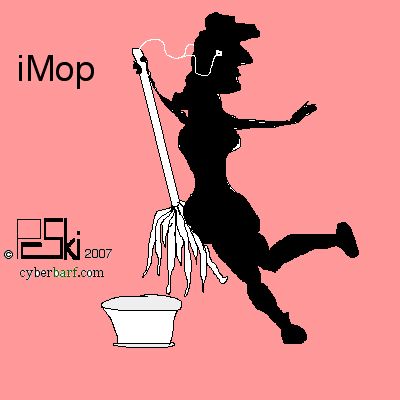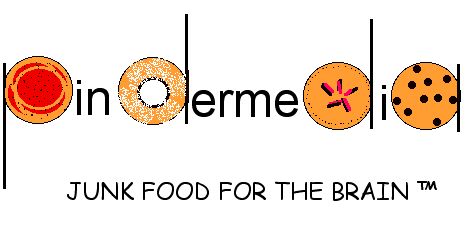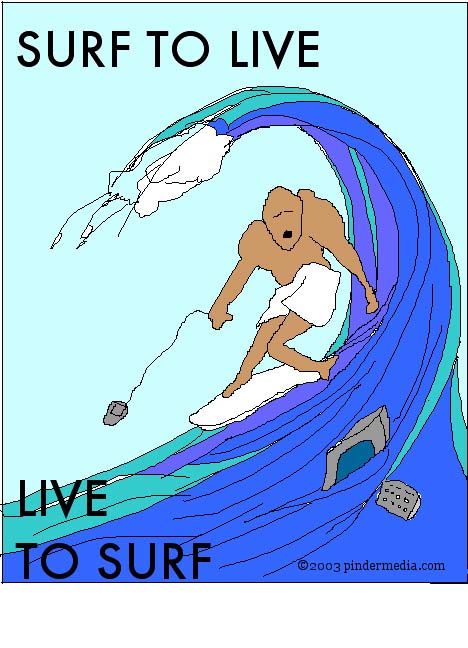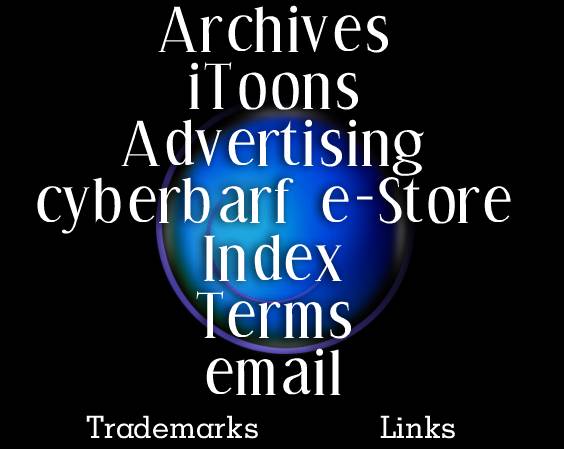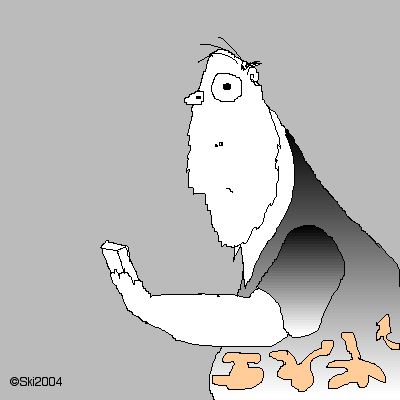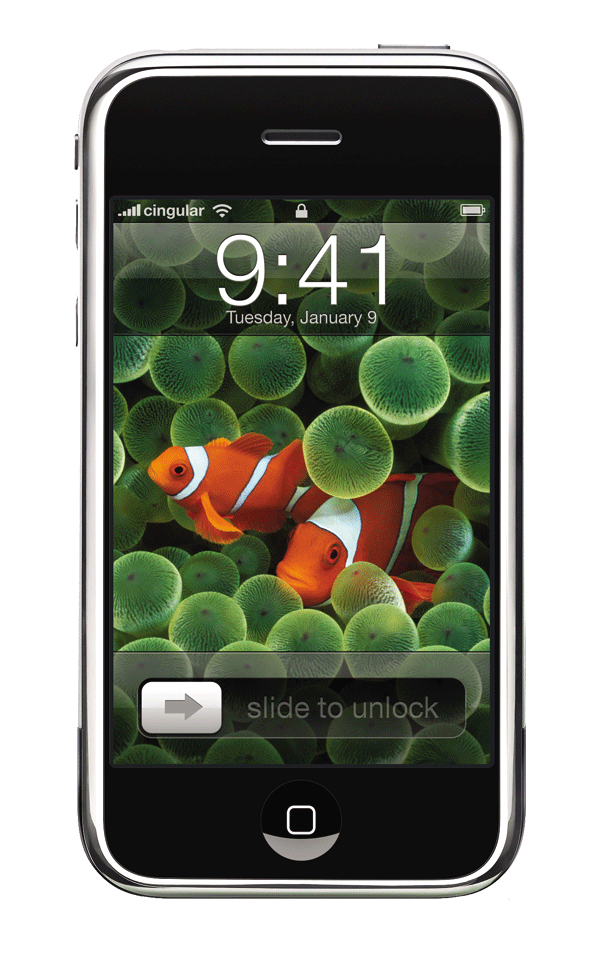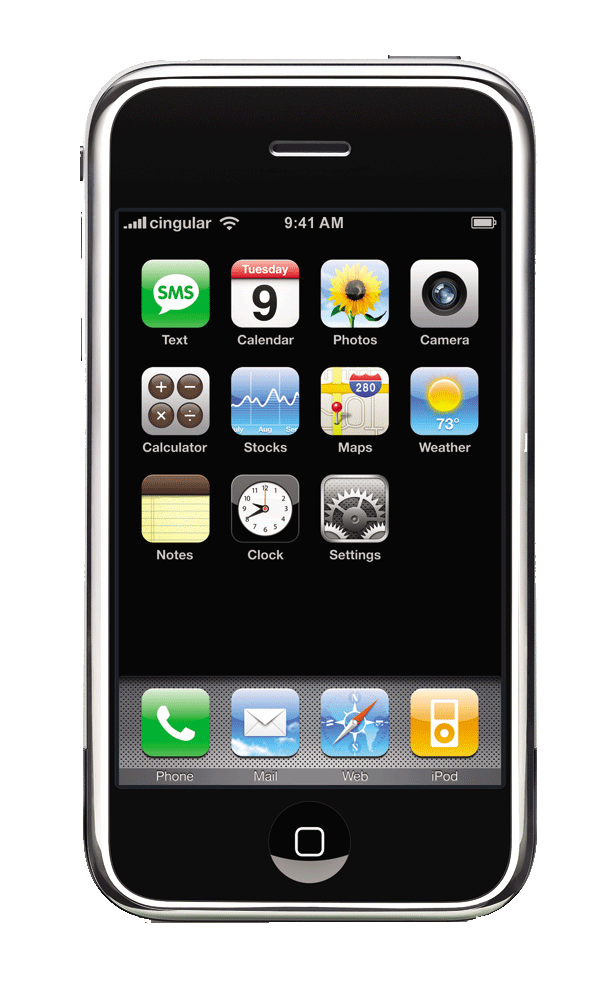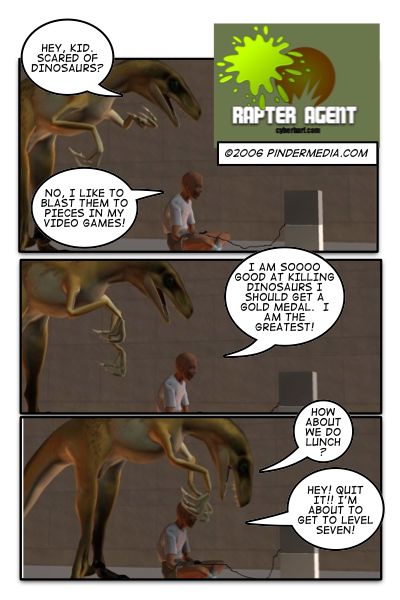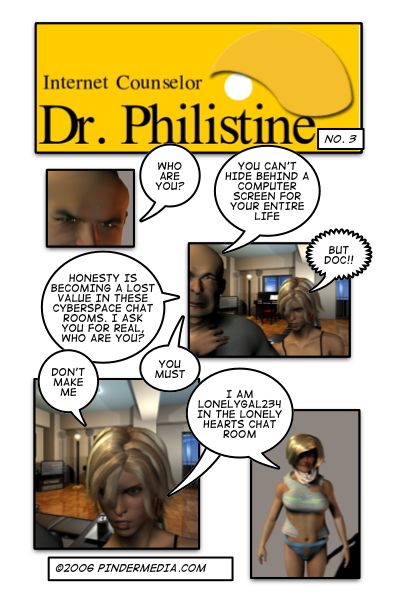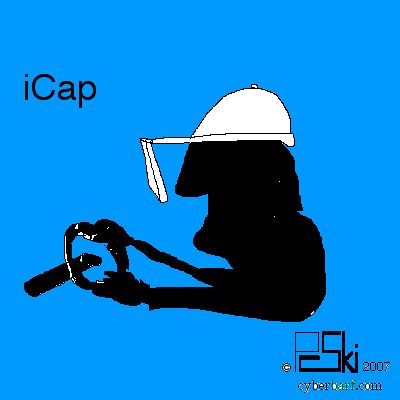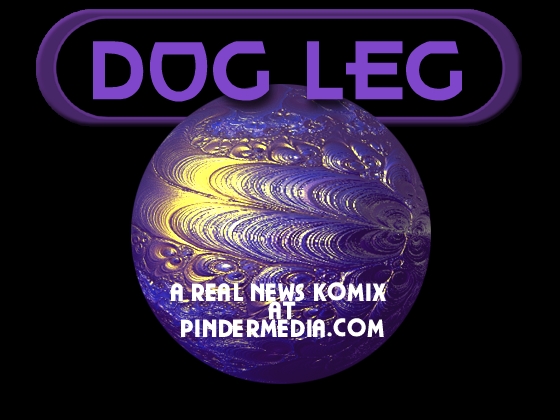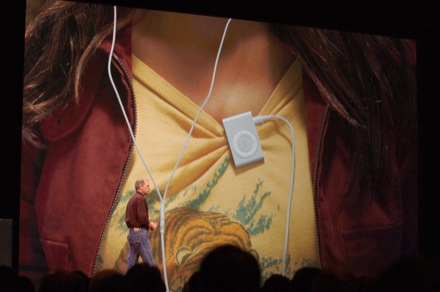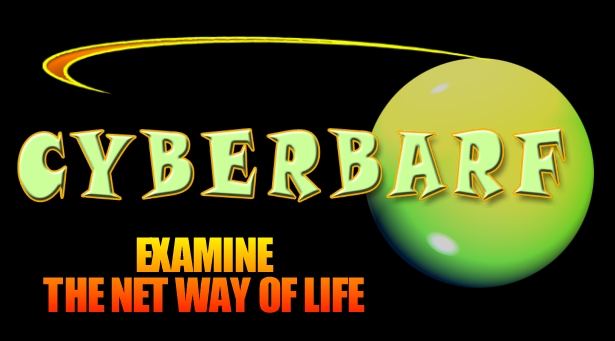Is the iPhone the revolutionary product that casts
Apple Computer into a new realm? Is the iPhone the watershed product
that the 1984 Macintosh (with the super Super Bowl ad) started the dawn
of the personal computer revolution? Is the iPhone the next, great,
killer app just like the iPod/iTunes dynamic totally changed the music
industry? It is extremely difficult to keep a product pipeline filled
with monumental innovations.
The next generation leap in telephone interplay is
pushing the desktop into a cellphone size package. A computer is a communication
tool. A cellphone is a communication tool. Merge them together you get
a new communication tool.
A cellphone or an Internet phone? The only difference
may be wireless speed for applications beyond normal telephone calls.
A personal assistant or a personal phone directory?
A contact list is a contact list; autodialers and point and click are
features common in most PDAs.
A laptop with an Internet connecton or a phone browser
with an Internet connection? Screen size may matter; connection speeds
will matter; and whether the iPhone can actually store any information
from one's web surfing (articles, photos, pages, links).
Is this an Apple proprietary product or a joint venture
reliant on third parties to make the Apple experience real? This may
be the Achilles heel for Apple, which has guarded its technology, operating
system and operating interfaces like a protective zealous parent with
their children. If Cingular's service is unavailable, slow or poor,
this will reflect badly on Apple. And this may be the strongest signal
from this year's Macworld Expo: Apple's willingness to let go of its
secrets in order to grow into a full blown consumer electronics company.
The Apple business plan was to make the best computers on earth. But
when Jobs announced that the company was changing its name, no one seemed
to notice the ramifications of losing the word “computer.”
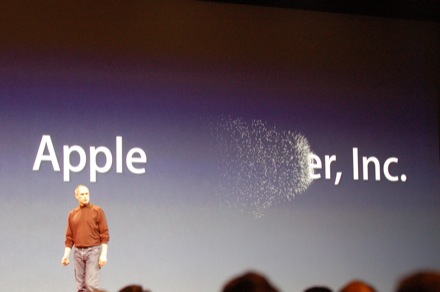
Jobs' keynote address was devoid of any Macintosh “computer”
news. The AppleTV product is an extension of the blueprint to make downloading
movies, television shows and music from the iTunes Store easier for
the average person. There was no mention of the new computer operating
system, Leopard, new iMacs, new MacBooks, or new software updates for
iLife suite of products. There was not even a hint at a 30th Anniversary
Macintosh product. The focus of the speech was the new consumer electronic
products.
The most important techno-feature to come out of this
keynote may be the multitouch interface. By getting rid of stationary
keyboards, tiny buttons, mouses, keypads, rolling wheels or stylus pens,
Apple may have solved the problem of lost pens, fat fingers on tiny
buttons and Blackberry carpel finger syndrome. If the touch screen adaptation
of using one's own fingers to type and click, it is not that great a
leap of faith to find this technology in the next generation of laptops
and computer display screens. The question is whether it can be ported
elegantly into existing mainstream computer products.
And that begs the ultimate question. Will Apple's R&D
continue to focus on creating better computer products or will it be
diluted into sharing its knowledge capital into making consumer electronic
products to compete with integrated giants like Sony? There is a fine
line to walk here: the middle of the road to keep the loyal Mac computer
faithful in the cult of the personal computer revolution for the last
30 years or walking the plank by abandoning them to try to find the
general consumer in the home electronic market of stereos, home theatres,
television sets, cable boxes or game stations. There is a mixed signal,
much like a fuzzy cell phone call, coming from Apple this year. We thought
we heard that Apple is no longer a computer company.
iToon
